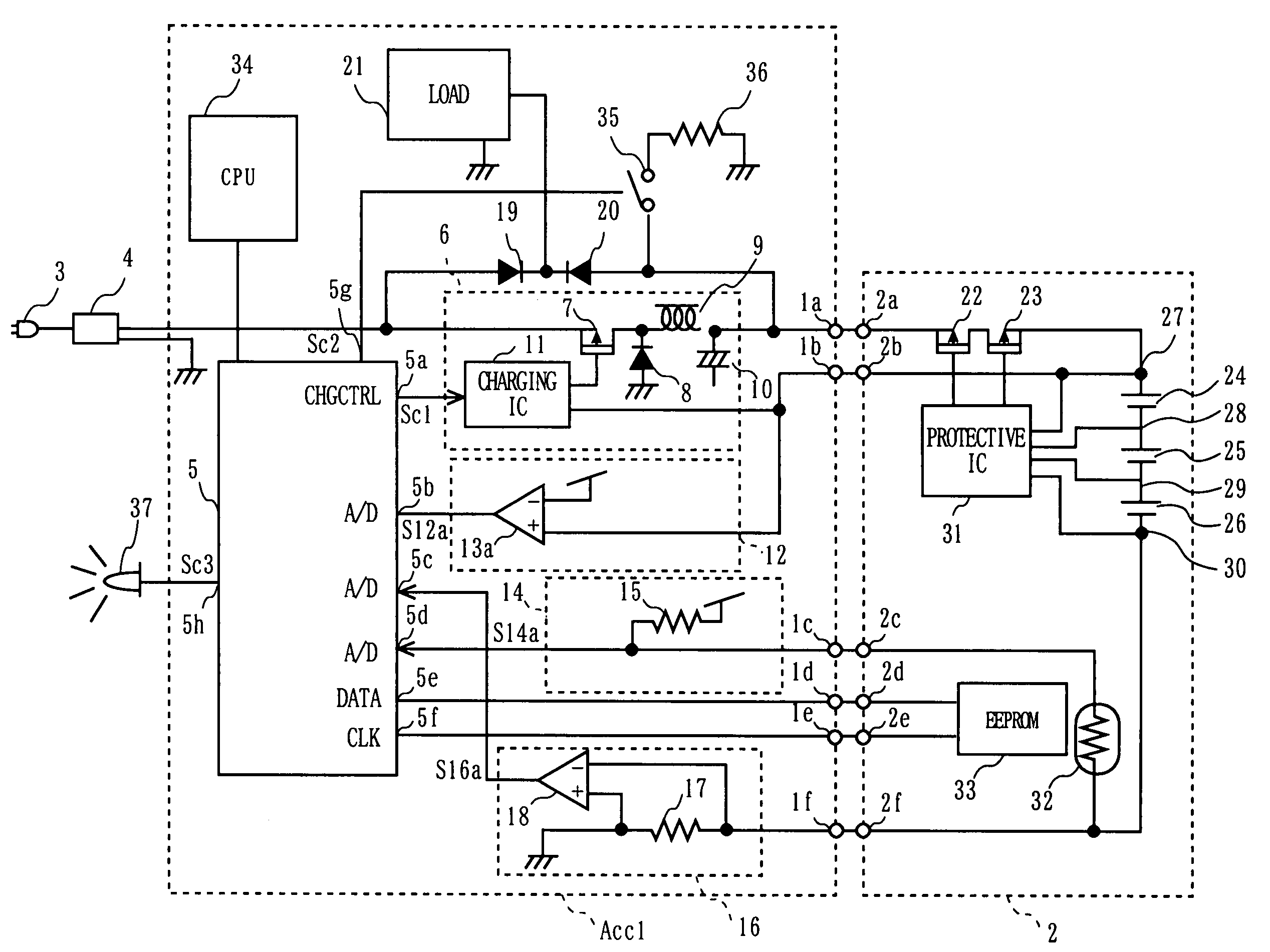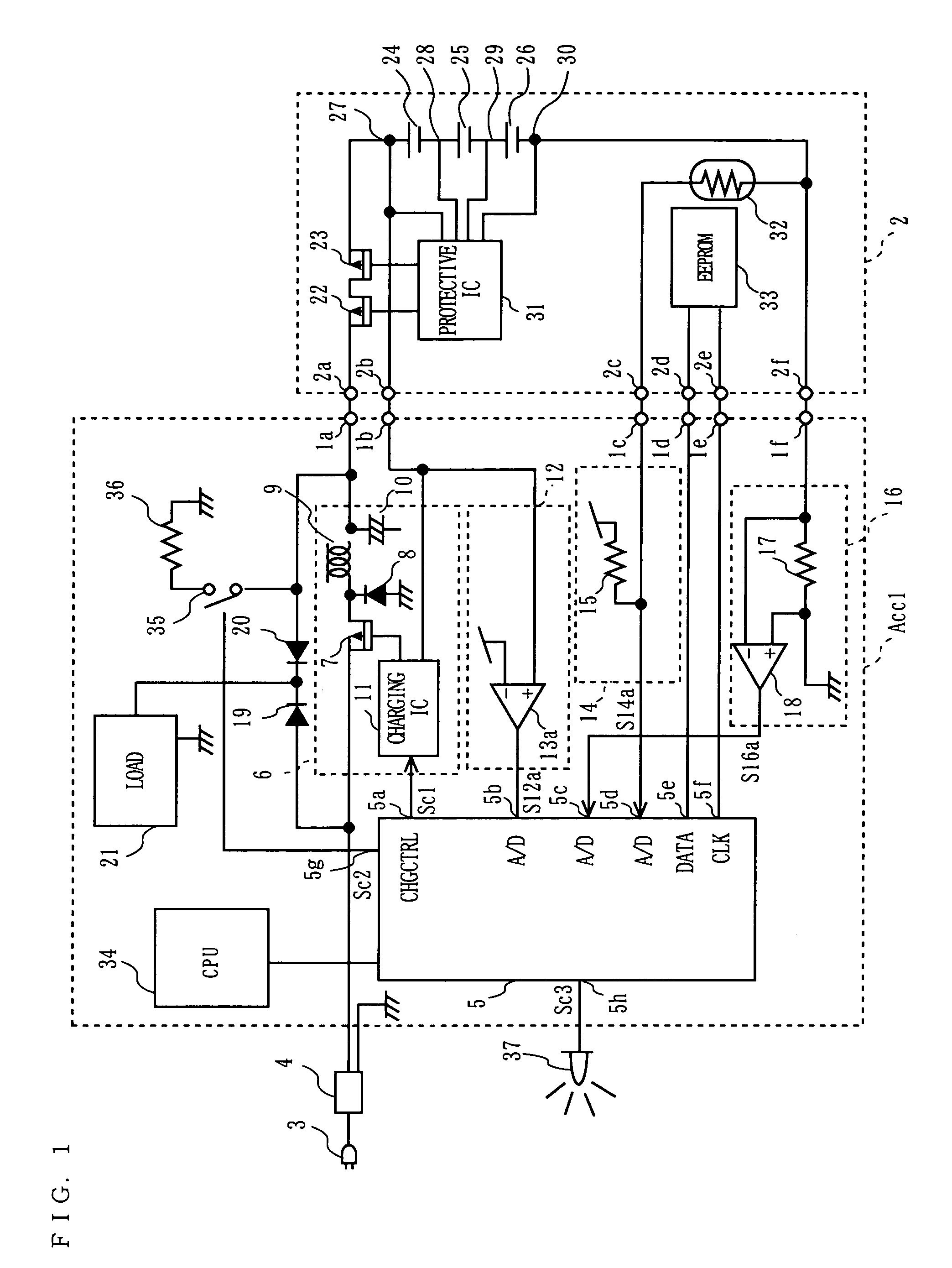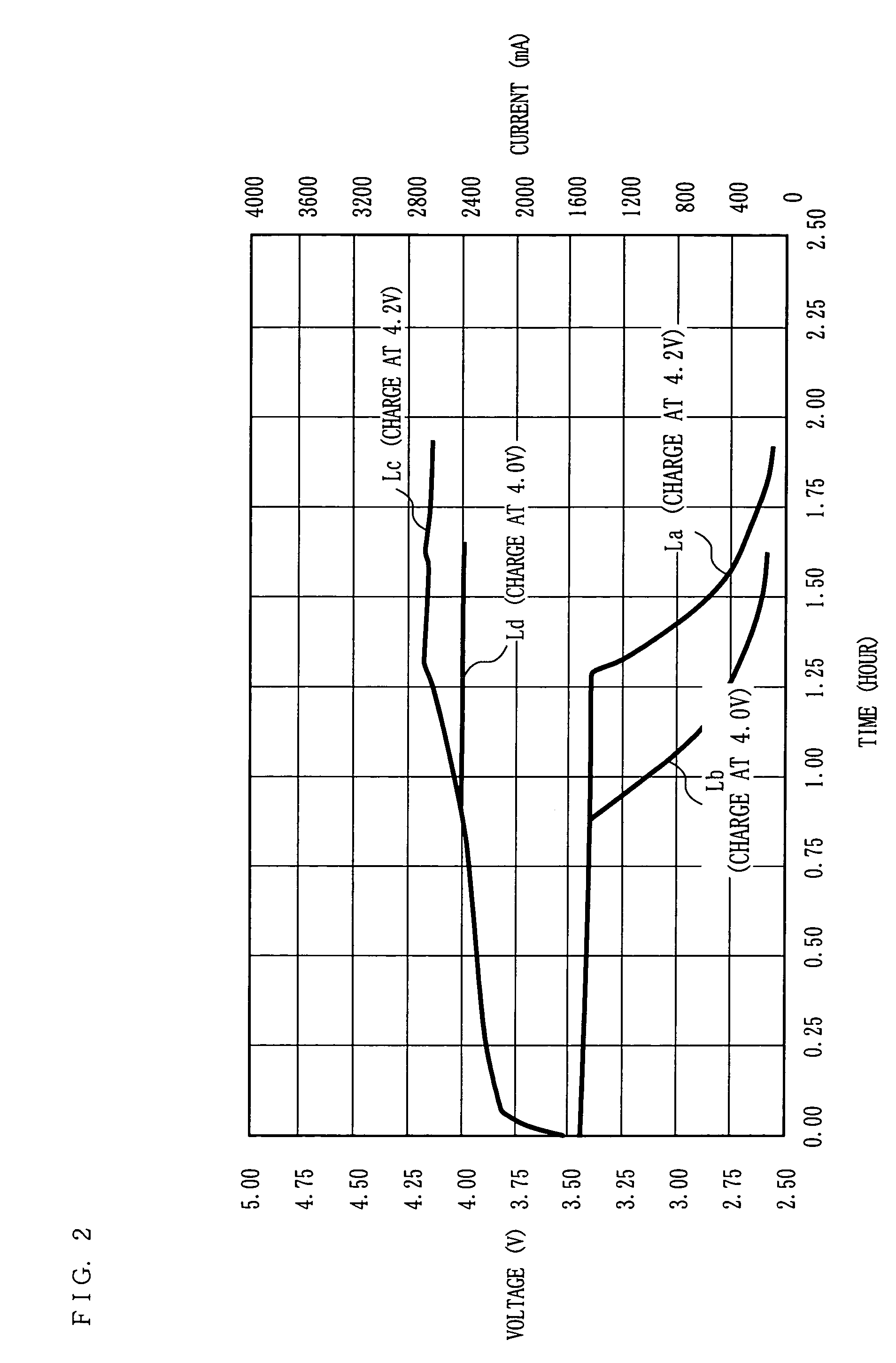Charge control device for a secondary battery
a secondary battery and control device technology, applied in the direction of charge maintainance charging/discharging, instruments, transportation and packaging, etc., can solve the problems of reducing discharge capacity, difficult to select an appropriate charge level in the aforementioned method, and reducing the charging rate, so as to extend the cycle life of the secondary battery
- Summary
- Abstract
- Description
- Claims
- Application Information
AI Technical Summary
Benefits of technology
Problems solved by technology
Method used
Image
Examples
first embodiment
[0022]Hereinafter, with reference to FIGS. 1, 2, 3, and 4, a charge control device according to a first embodiment of the present invention is described.
[0023]As shown in FIG. 1, a charge control device ACC1 is connected to a battery pack 2, and used for controlling a charged level of the battery pack 2. A terminal 1a, a terminal 1b, a terminal 1c, a terminal 1d, a terminal 1e, and a terminal 1f included in the charge control device ACC 1, and a terminal 2a, a terminal 2b, a terminal 2c, a terminal 2d, a terminal 2e, and a terminal 2f included in the battery pack 2, are detachably connected to each other respectively.
[0024]The charge control device ACC1 includes a microcontroller 5, a charge circuit 6, a voltage detection circuit 12, a temperature detection circuit 14, a current detection circuit 16, a diode 19, a diode 20, a load 21, a CPU 34, a switch 35, and a discharge resistor 36. A power is supplied at a predetermined voltage to the charge control device ACC1 from an alternati...
second embodiment
[0072]Hereinafter, with reference to FIG. 4, the charge control device according to a second embodiment of the present invention is described. Firstly, its basic concept is described. As shown in FIG. 4, the charge control device ACC2 in the second embodiment is different from the charge control device ACC1 shown in FIG. 1 in that the charge control device ACC2 further comprises the FET 38 between the power supply unit 4 and the charge circuit 6, and the load 21. Furthermore, the microcontroller 5 in the charge control device ACC1 is replaced with the microcontroller 5′ in the charge control device ACC2. In addition to the first charge control signal Sc1 and the third charge control signal Sc3, the microcontroller 5′ has a function of generating a fourth charge control signal Sc4, which controls the FET 38 and the power supply circuit 39 of the load 21. Note that the second control signal Sc2 is not to be generated.
[0073]In the charge control device ACC2, similarly to the microcontr...
PUM
 Login to View More
Login to View More Abstract
Description
Claims
Application Information
 Login to View More
Login to View More - R&D
- Intellectual Property
- Life Sciences
- Materials
- Tech Scout
- Unparalleled Data Quality
- Higher Quality Content
- 60% Fewer Hallucinations
Browse by: Latest US Patents, China's latest patents, Technical Efficacy Thesaurus, Application Domain, Technology Topic, Popular Technical Reports.
© 2025 PatSnap. All rights reserved.Legal|Privacy policy|Modern Slavery Act Transparency Statement|Sitemap|About US| Contact US: help@patsnap.com



